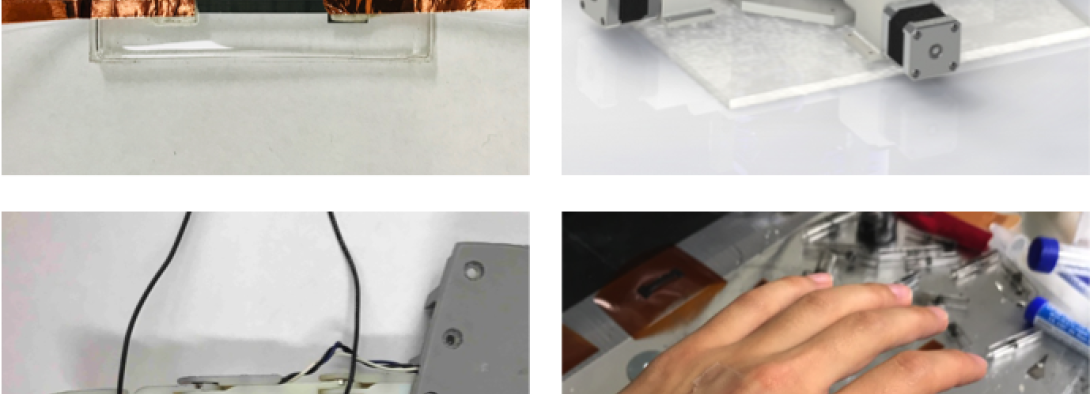The objective of this project to implement laser-induced graphene sensing in a robotic glove exoskeleton, aiming to optimize the high sensitivity properties of LIG/PDMS composites for a robotic application and further improve upon the usability and sensitivity of exisisting glove designs and serve as a test bed for cutting edge nanomaterials. Laser-induced graphene (LIG) can be synthesized by a one-step process through CO2 laser treatment of commercial polyimide (PI) film in an ambient atmosphere, selectively converting PI to conductive graphene film. Infiltration of PDMS into LIG can be used to create high sensitivity conductive materials with gauge factors exceeding 200, which could have untapped potential for applications in robotic sensing due to the unique material properties of LIG. Current research at the MAHI Lab focuses on creating a soft robotic exoskeleton to improve hand rehabilitation for individuals with incomplete spinal cord injury, which aims to provide a “hands-in” approach to rehabilitation. We aim to overcome limitations imposed by using string potentiometers as position sensors, which are relatively bulky, heavy, and expensive, instead implementing soft, stretchable LIG/PDMS composites. This project is conducted in collaboration with the James M. Tour Group at Rice University in the Department of Chemistry.

Rehabilitation Robotics
